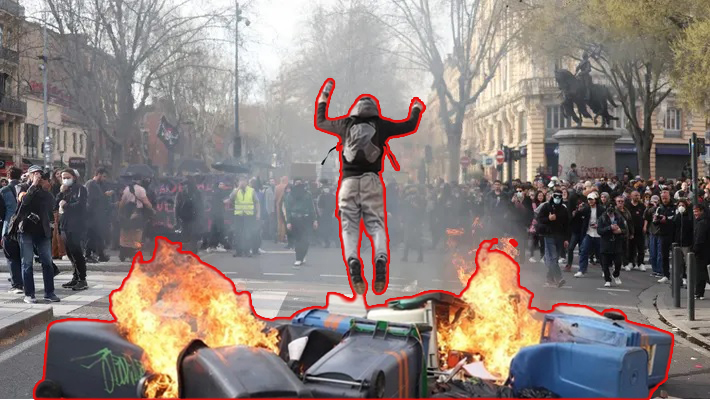
- It is crucial for the European Union to swiftly implement stricter immigration policies to prevent the escalation of riots.
- Some have alleged that the recent riots in France were supposedly planned by the CIA to overthrow the government as President Macron wanted to separate France from the European Union.
- The sentiment that the EU should move away from its long-standing history of multiculturalism and instead implement stricter measures, including banning refugees and asylum seekers from regions affected by conflict is gathering steam across the continent.
Each of the numerous nations that make up Europe has its own distinct political, social, and economic conditions. The European Union (EU) is still in operation as a supranational body dedicated to fostering harmony, cooperation, and integration among its member nations. Europe has recently encountered a number of difficulties, including political unrest, immigrant problems, and economic difficulties but the EU has been unable to take a stand.
Protests over the death of a 17-year-old teenager in France sparked the undercurrent, which spread to neighbouring Switzerland and Belgium. Seven persons, mostly juveniles, were detained in Lausanne, Switzerland, amid clashes between police and largely young male demonstrators. This occurred after a number of stores were vandalised. Instances of arson were reported in Brussels, Belgium’s capital, the previous week, where a dozen suspects were imprisoned.
The EU must address the impact of unchecked migration and asylum seekers from North Africa, the Middle East, Syria, Turkey, Pakistan, and Bangladesh which has only resulted in the rise of terror attacks in the region. The EU has a pressing challenge on its hands which is to ensure the practical integration of Muslims through measures like psychological evaluations, education on EU laws, and background checks. The sentiment that the EU should move away from its long-standing history of multiculturalism and instead implement stricter measures, including banning refugees and asylum seekers from regions affected by conflict is gathering steam across the continent. The sentiment is due to the concerns about indoctrination and adherence to religious doctrines by the migrants rather than complying with the laws of the host countries.
The situation is so pressing that the heads of both houses of parliament and the mayors of the 220 towns and cities affected by the protests met with President Emmanuel Macron this week. There is talk that the government may declare an emergency as a result of the protests. The three main cities in the nation—Paris, Lyon, and Marseille—had an increased security presence thanks to the deployment of about 45,000 police personnel as well as specialised elite units, armoured vehicles, and helicopters.
Some have alleged that the recent riots in France were supposedly planned by the CIA in an effort to overthrow the government because President Macron wanted to separate France from the European Union. However, there is no proof to corroborate these allegations. Few analysts in the EU believe that the cancellation of the submarine contract and France’s involvement in BRICS may have contributed to the conflict between the US and France. There are also rumours that the US military-industrial complex wants to use India as a hub for outsourcing in order to further its geopolitical objectives in the Indo-Pacific. It is significant to emphasise that these assertions are still theoretical and without evidence.
Given the urgency of the situation, it is crucial for the European Union to swiftly implement stricter immigration policies to prevent the escalation of riots seen in France from evolving into situations resembling the Black Lives Matter movement in the US or the Arab Spring in the Middle East. Timely and stringent measures can help maintain stability and prevent further unrest.
(The author is a post-graduate student in International Relations at Kalinga University, Raipur. The opinions expressed are the author’s own)
Aayush Pal is a freelance writer on contemporary geopolitical developments. The views expressed in his work are entirely his own.
